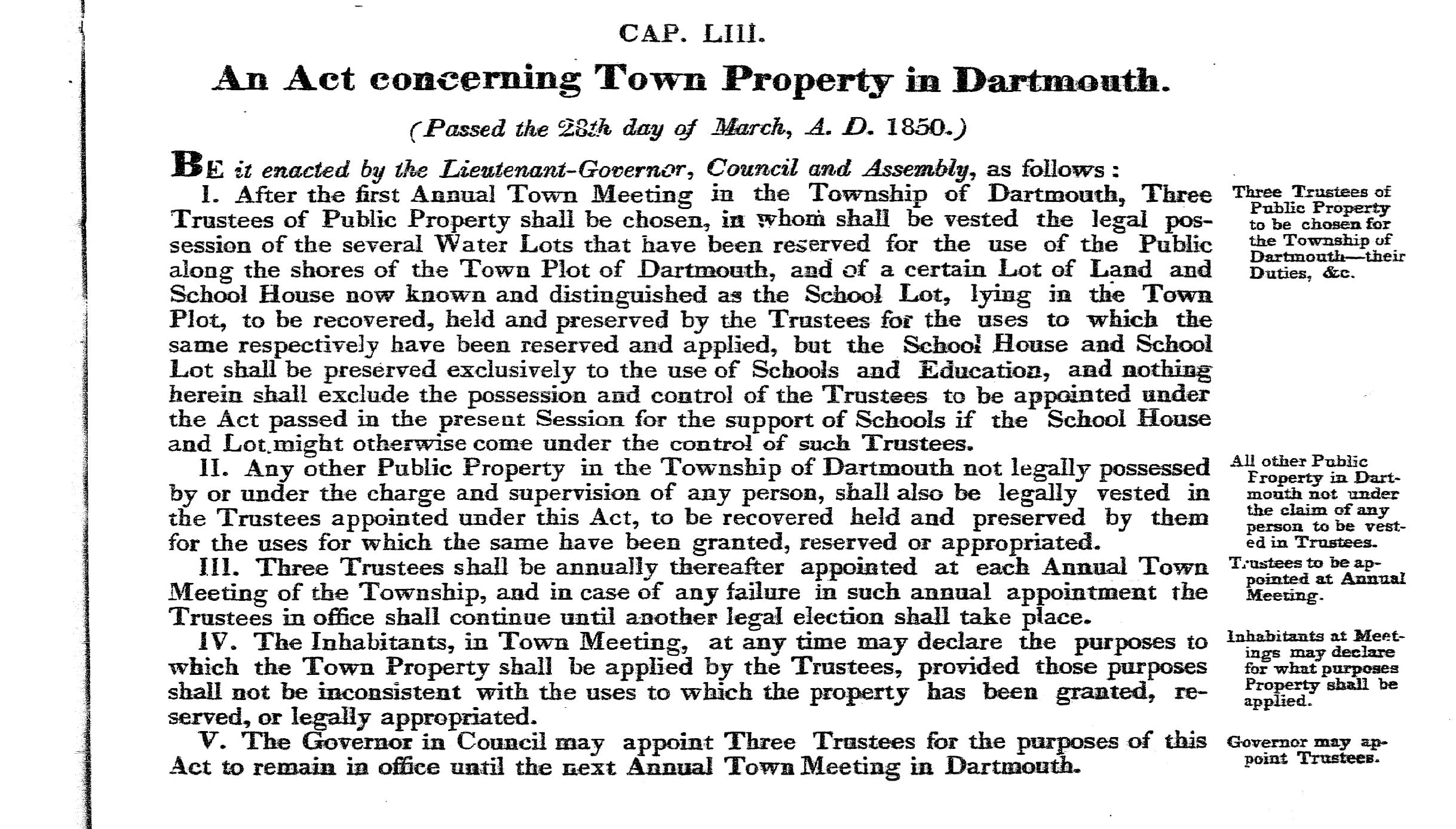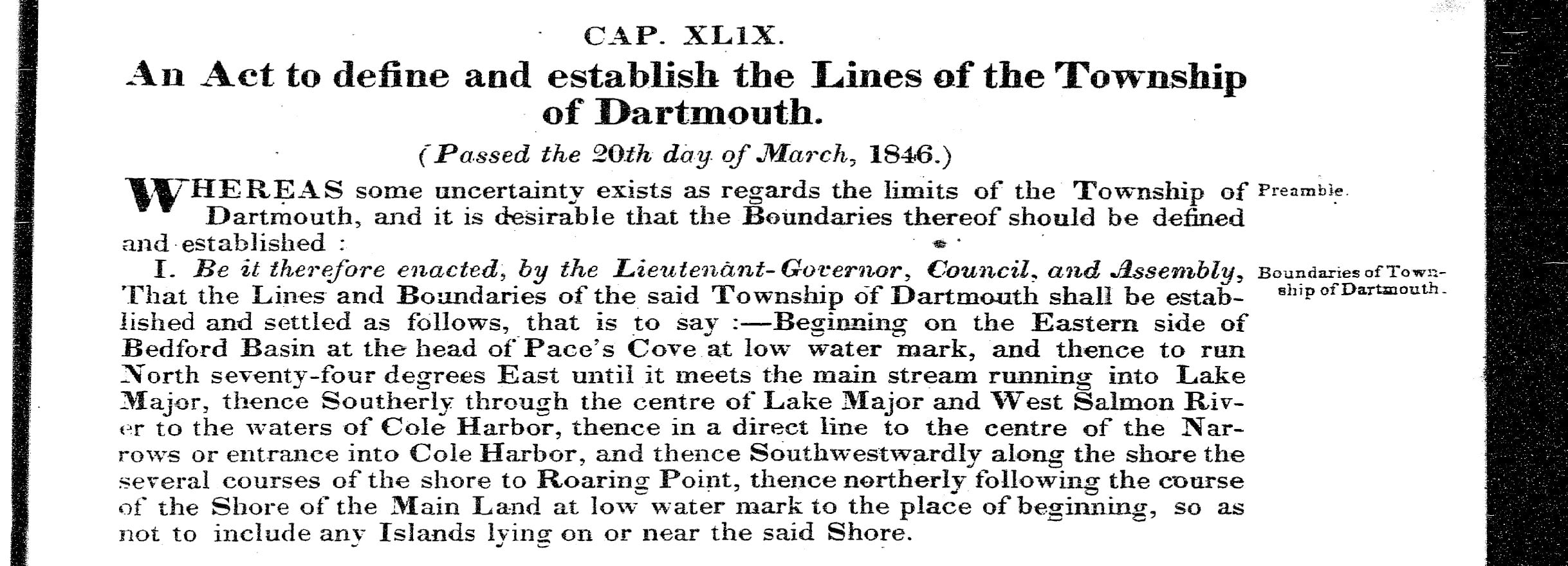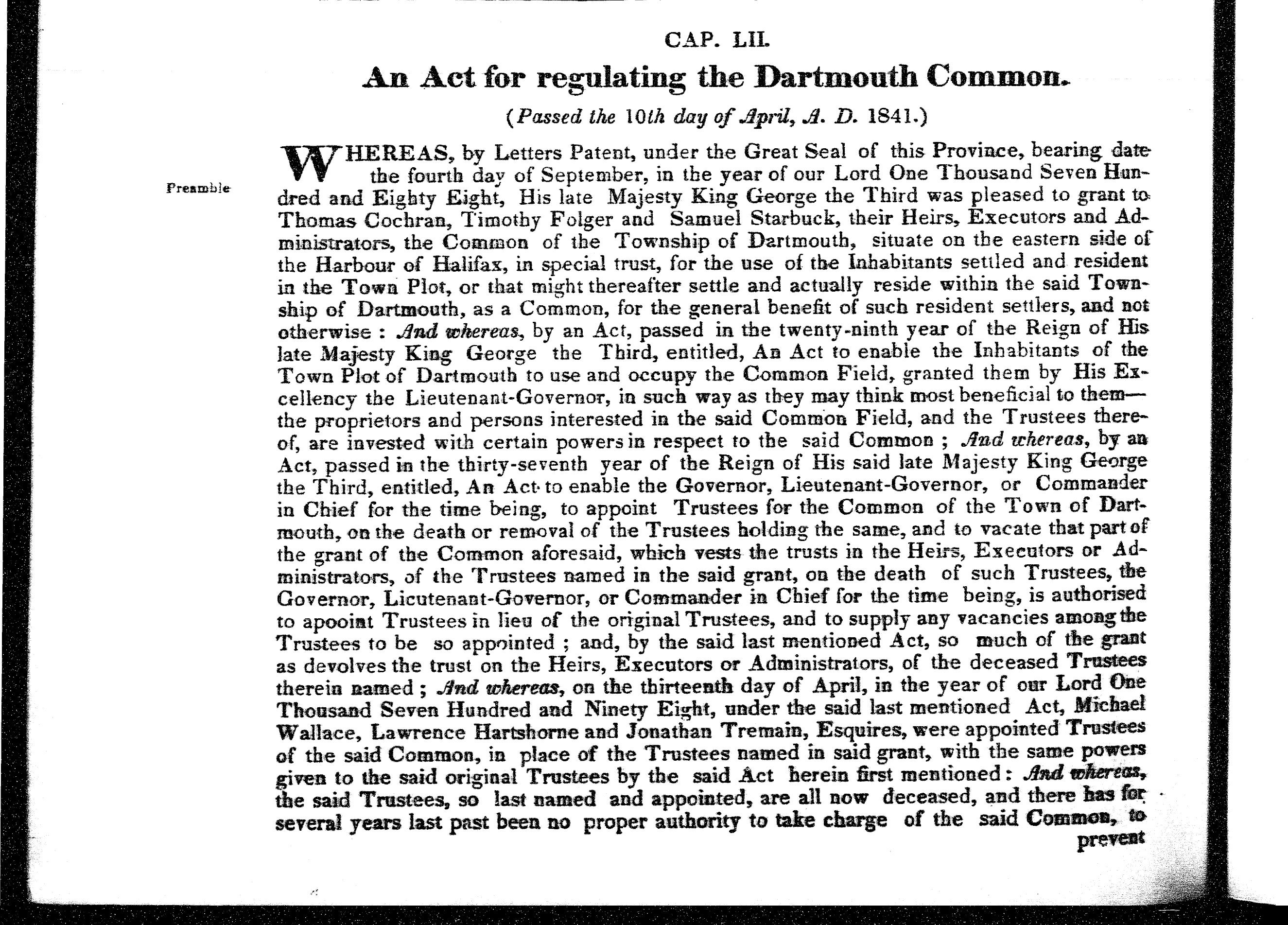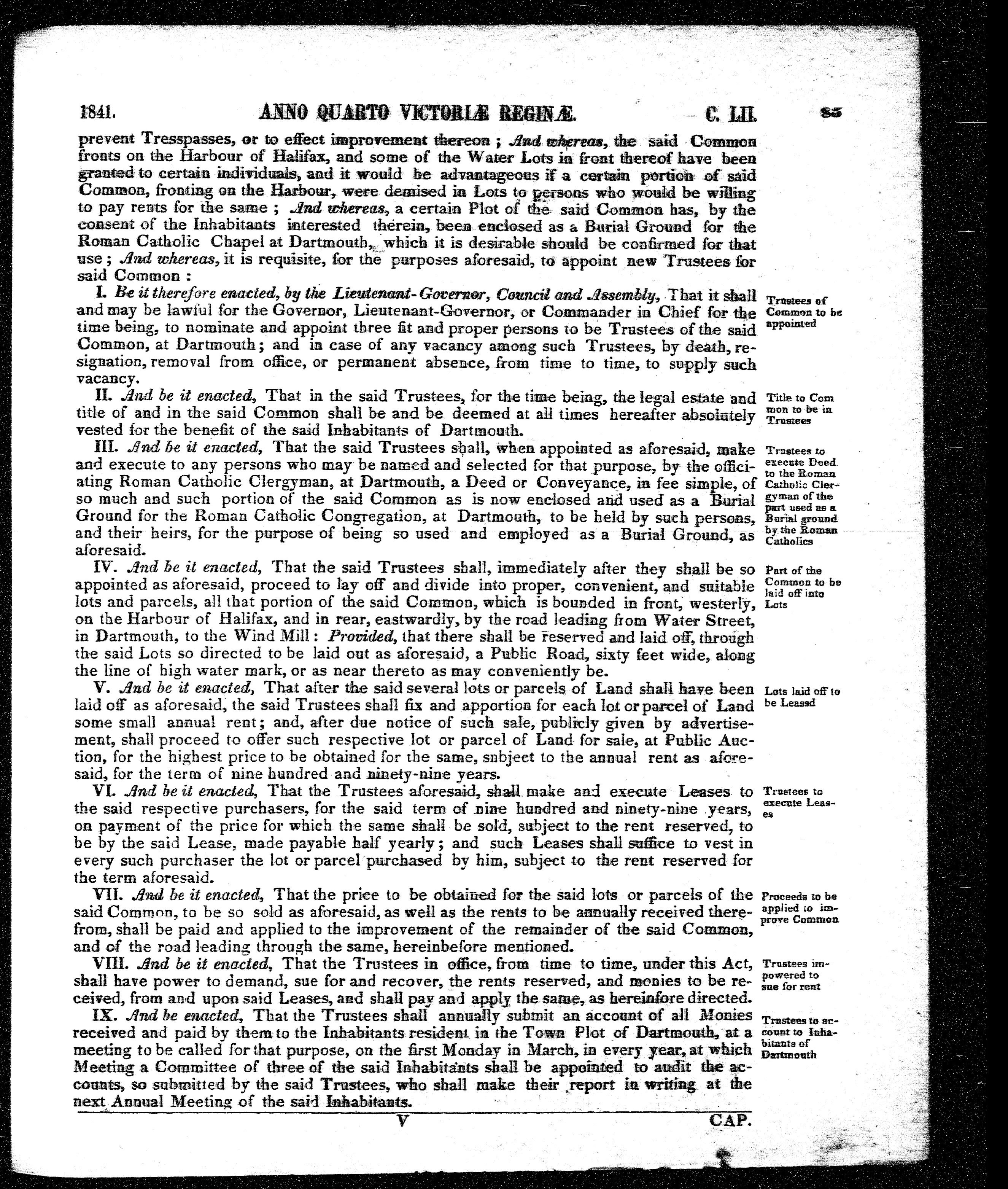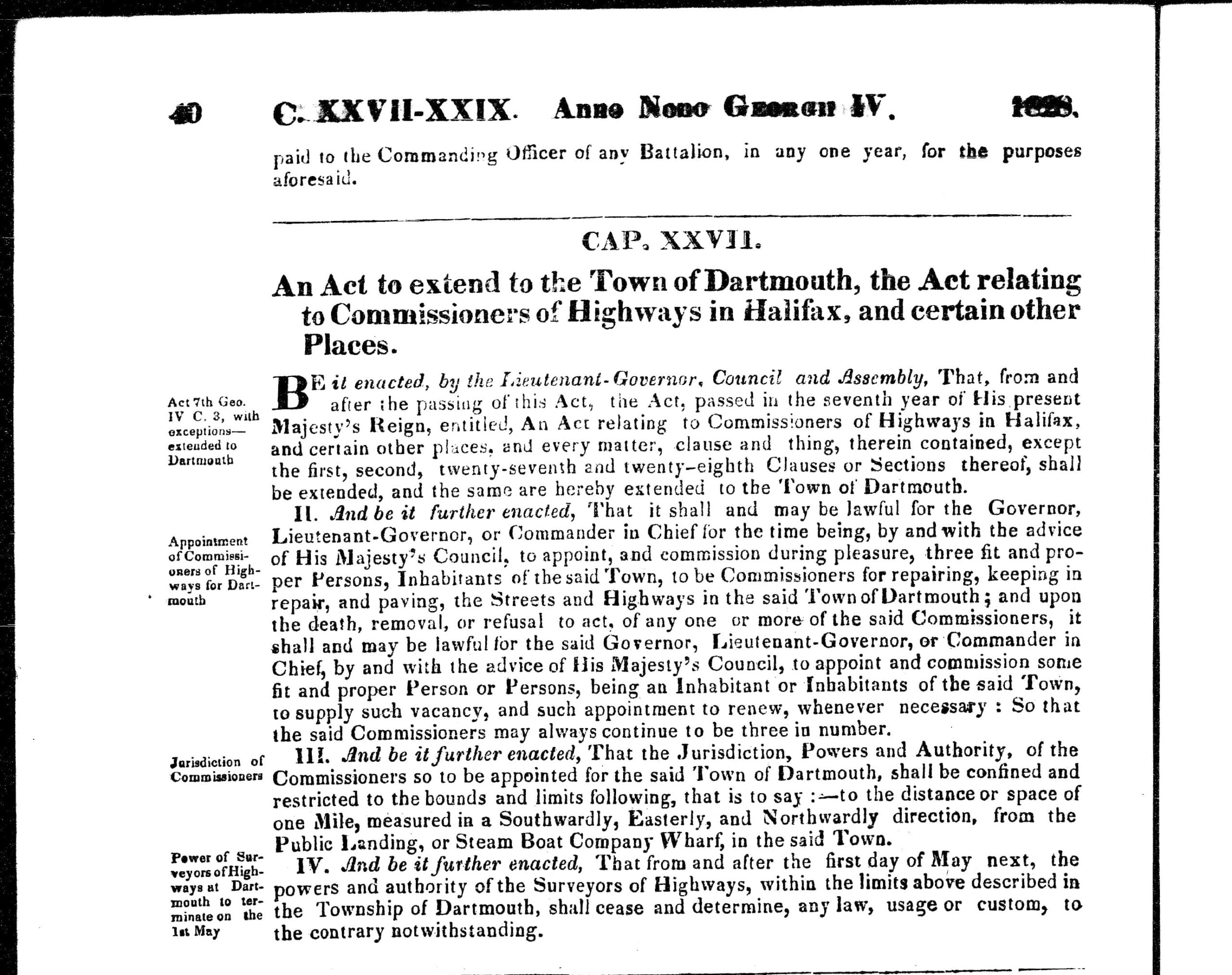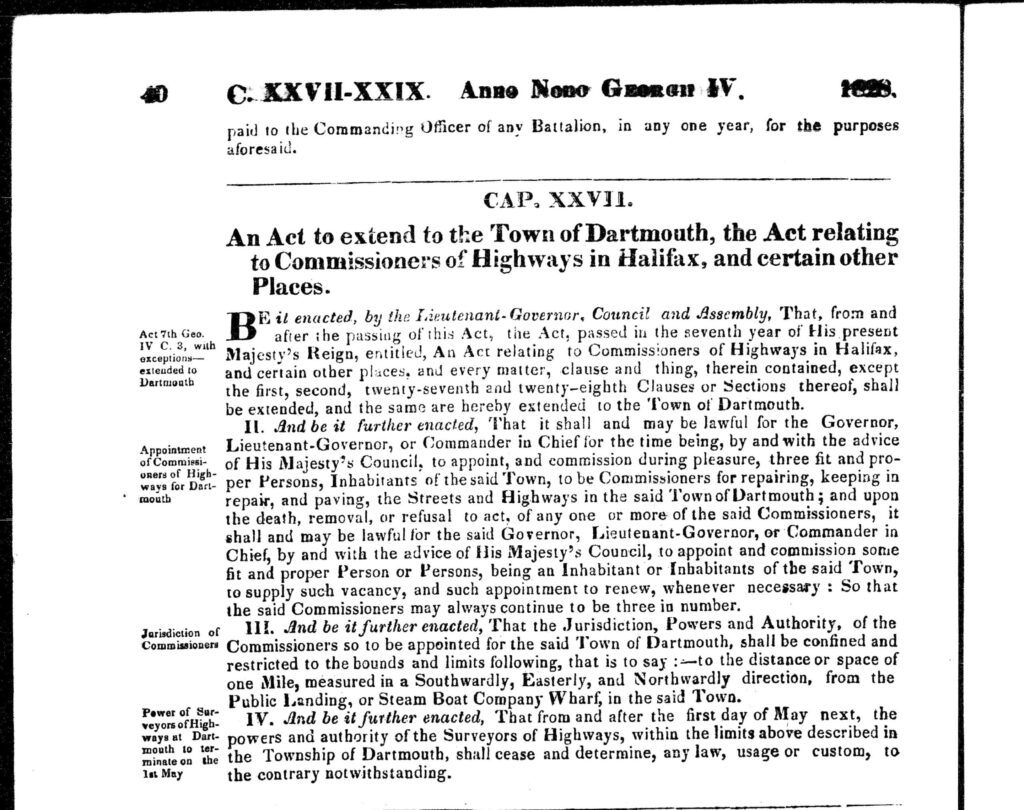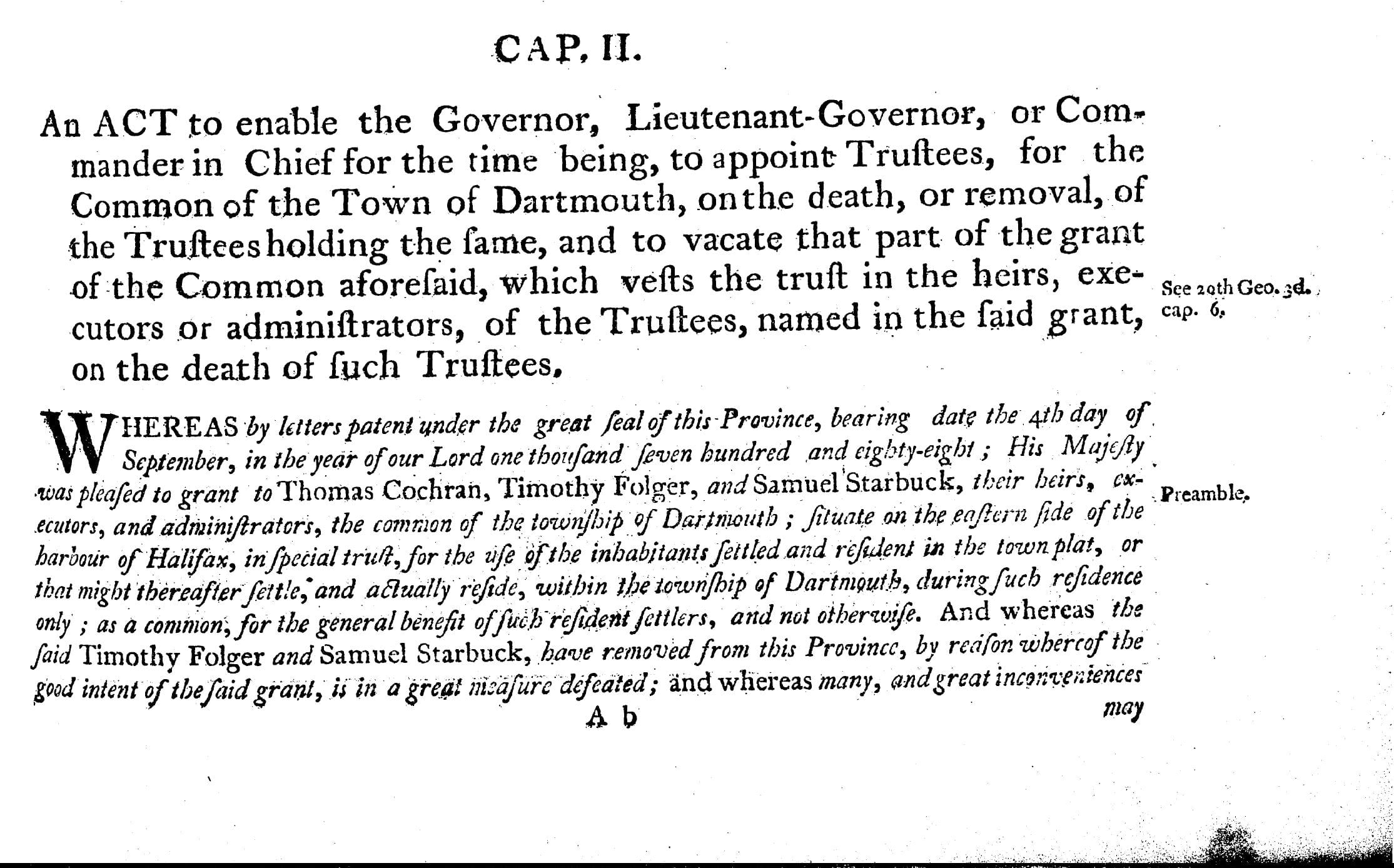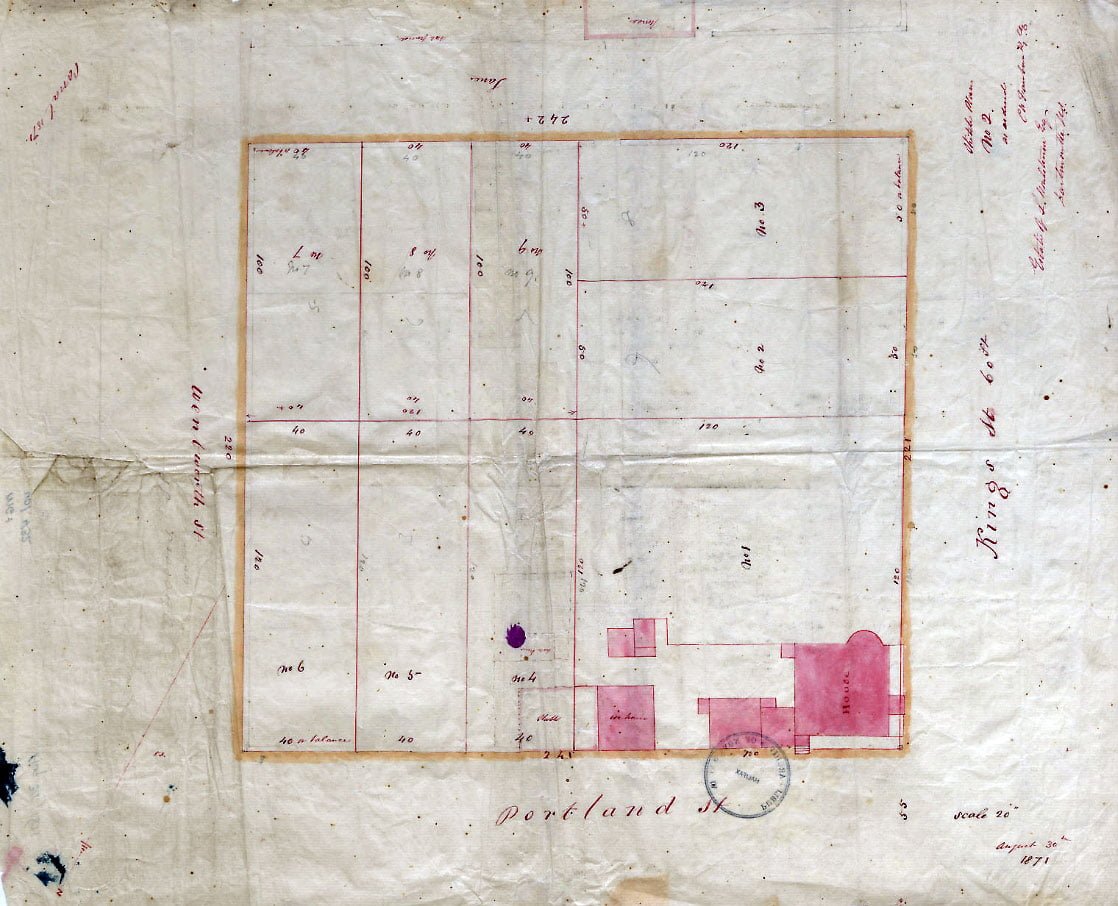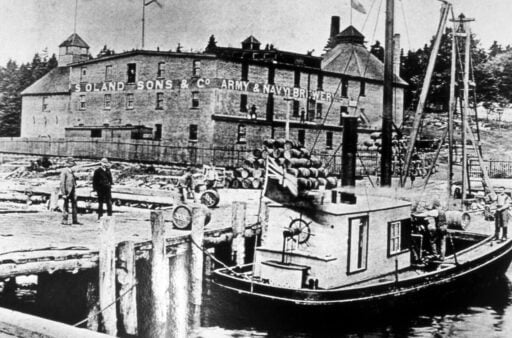Read a letter from Charles Lawrence, Esquire, Governor of Nova Scotia, to the Board, dated at Halifax, November 9th, 1757, transmitting the following papers, and containing his observations on some articles in the estimate for 1758.
Estimate of expence that will arise in supporting and maintaining the province of Nova Scotia in the year 1758.
Minutes of Council from the 3rd of October, 1756, to the 14th December, 1757.
Naval officer’s list of ships and vessels that have entered and cleared at the Port of Halifax between the 1st of July and 31st of December, 1756.
Letter from Mr. Saul, Commissary of Stores, to Governor Lawrence, dated November the 11th, 1757.
Ordered, that the said letter and papers be taken into further consideration on Monday next, and that Mr. Parker, acting as agent for the settlement of the colony of Nova Scotia, have notice to attend the Board on that day.
Monday, January 23.
Present:—Earl of Halifax, Mr. Oswald, Mr. Pelham, Mr. Jenyns, Mr. Hamilton, Mr. Sloper.
The Secretary then communicated to the Board a letter he had received from Mr. Parker, acting as agent for the settlement of the colony of Nova Scotia, acquainting him that he was confined to his chamber by a severe fit of the gout, and not able to attend the Board as desired, but hoped to give his attendance in a few days.
Their lordships took into further consideration the letter from the Governor of Nova Scotia and the papers transmitted with it mentioned in yesterday’s minutes and made some further progress therein.
Their lordships made a further progress in the consideration of the letter and papers from the Governor of Nova Scotia mentioned in the preceding minutes.
Wednesday, January 25.
Present:—Earl of Halifax, Mr. Oswald, Mr. Jenyns, Mr. Hamilton, Mr. Sloper.
Their lordships made a further progress in the consideration of the letter and papers received from the Governor of Nova Scotia mentioned in the preceding minutes.
Ordered, that an extract be made of so much of the said letter as relates to the want of an immediate supply of bedding for the troops and cloathing for the Rangers, and also an account made out of the several particulars contained in the estimate for 1758, of what is represented to be necessary for the further security and defence of the province, and the service of the troops stationed there, for the further consideration of the Board at their next meeting.
Thursday, January 26.
Present:—Earl of Halifax, Mr. Jenyns, Mr. Hamilton, Mr. Sloper.
The Secretary laid before the Board the following papers prepared pursuant to the preceding day’s minutes, viz.:—
Extract of a letter from Charles Lawrence, Esquire, Governor of Nova Scotia, to the Board, dated November 9th, 1757, relating to the want of an immediate supply of bedding for the troops and cloathings for the Rangers.
Account of several military services, the charge of which is stated in the estimate for Nova Scotia for 1758, transmitted by Governor Lawrence to the Board, and represented by him to be necessary for the further security and defence of that province and the military establishment there.
Friday, January 27.
Present:— Earl of Halifax, Mr. Jenyns, Mr. Hamilton, Mr. Stone.
Read a petition of Ferdinando John Paris, gentleman, to this Board, dated the 26th of January, 1758, in behalf of the freeholders at Halifax in Nova Scotia, complaining of several grievances sustained by the inhabitants of the said colony, and inclosing:—
State of facts relating to the complaint of the freeholders in Nova Scotia.
Appendix to the state of facts.
Resolved. that the said memorial and papers be taken into consideration on Tuesday next, the 31st instant; and Mr. Paris. the memorialist. attending without, was called in and acquainted therewith. and that the Board will be ready on that day to hear anything he may have to offer upon it.
Tuesday. January 31.
Present:—Earl of Halifax. Mr. Oswald. Mr. Jenyns. Mr. Hamilton. Mr. Sloper.
Their lordships pursuant to the preceding minutes took into consideration the memorial of Mr. Paris, agent for the freeholders of Nova Scotia. and the papers referred to therein: and Mr. Paris attending as desired with Mr. Forrester, his counsel, they were called in, together with Mr. Bower, an inhabitant of the said province, lately arrived from thence; and Mr. Forrester having opened the nature and effect of the several matters complained of by the said freeholders, and Mr. Bower having been examined touching the alledged declining state of the colony and some particular injury alledged to have been sustained by him from proceedings of the Governor and other officers of government there. Which he stated to be arbitrary and illegal, and several depositions made by persons resident in the said province, touching injurys sustained by them by the proceedings of the Governor and his officers, having also been read, Mr. Forrester then moved their lordships that they would be pleased to advise and recommend to his Majesty to issue his Royal Instruction to the Governor and Commander in Chief in Nova Scotia for the time being, that he do forthwith and without delay proceed to call a General Assembly or House of Representatives in that province under such qualifications and regulations as their lordships shall think fit to offer to his Majesty’s consideration.
That with respect to the plan proposed by the Governor and Council for calling an Assembly in their declaration of the 3rd of January, 1757. Mr. Forrester observed that the freeholders are intitled to such an Assembly as other colonies have, namely to have a free Assembly to be elected by themselves; but the proposition is so framed that the Governor really and in substance may nominate more than two thirds of the members.
That the declaration proposes that members should be returned for the province at large 12
For the township of Halifax 4
Lunenburg 2
Dartmouth 1
Lawrence Town 1
Annapolis 1
Cumberland 1
22
That as to the inhabitants of Lunenburg, they are foreigners, such as Germans, Swiss and French Roman Catholicks; the inhabitants at Lunenburg are more than all the other English inhabitants in the colony; many of them have been there seven years, and therefore under the Act of the 13th of his present Majesty, claim to be intitled to the privilege of subjects; but even freeholders, natural born subjects in their circumstances, it’s apprehended ought not yet to vote at all, in electing any members (more especially, not in electing 14 out of the 22 members) because they are upon the foot of poor persons subsisted by charity, indeed by the charity of this nation, though made to believe that they owe it to the Governor’s benevolence, so that to let them at present vote for 14 members would be effectually to give the Governor the power of nominating so many himself.
That as to the inhabitants of Lawrence Town, of Annapolis, and of Cumberland, it is proposed that each of these townships (as called) should elect one member for itself, and join in the election of 12 more, for the province at large; even now, while they are so inconsiderable, as that the inhabitants of Cumberland consist of five old serjeants and soldiers, all sutlers to the garrison there, and subject to military law (for none other was ever heard of in that place); Lawrence Town consists of three sutlers subject to the direction of the proprietors of that tract, and under their influence, and the town decaying every day; and Annapolis is a garrison, of the like sort of inhabitants and a place of no significancy to the Crown.
That it is humbly apprehended that the proposing that those three towns, in such circumstances, should send each their own particular member, and should also join in choosing twelve other members for the province at large, manifestly shews, either one or both of the following matters:—
1st. That the inhabitants are reduced to a very small number,
or
2ndly. That the Governor desires to have the nomination of the greater part of the Assembly.
That as to the qualification and disqualification of the electors and elected, one of the qualifications of the electors and elected is the having a freehold in the place, where voted for, or where elected; but the value of such freehold in either person is not at all limited; so that persons of the very lowest condition, if they have but any such freehold, of ever so mean a value, may elect or be elected, which is conceived not to be agreeable to the British Constitution, nor to the practice in other colonies, and whereby the members may possibly consist of the lowest and most unfit persons to the exclusion of those of the best property and substance; and it is submitted how reasonable or proper it may be to confine the member’s qualification to a freehold in that particular district, for which he is to be chosen, since a more proper person might be chosen, who has a proper freehold though not in that district. It is therefore humbly submitted whether the yearly value of the freehold to intitle a freeholder to elect, and the yearly value of the member’s freehold to make him capable of being elected should not be ascertained, and whether the member’s having a freehold of such value in any part of the province is not a reasonable and proper qualification.
That the declaration excludes non-commissioned officers and private soldiers from voting, by virtue of any dwelling built upon sufferance or by virtue of any possession of freehold, unless the same be registered to him, but it does not exclude even such from being elected members.
That under this head it may be proper to pray that no soldier may at any rate be allowed to vote, there being 3,000 soldiers there, and the inhabitants not more than half that number, so that if soldiers were permitted to vote, and any the smallest freehold (were it but the hundredth part of an acre) was to be a qualification, the other inhabitants can have but little hopes of being represented.
That the declaration provides that the voters, if required, should take the usual State oaths, and declare and subscribe the Test, and take the oath therein mentioned, but, which is very wonderfull, requires no such matter of the candidates or persons to be elected.
That the declaration provided that the precept for convening the first Assembly should be made returnable in sixty days, and the reason given for it in express words is, “On account of the present rigorous season,” from whence persons of plain understanding imagined the precept was to issue instantly during the then present, rigorous season. It is now thirteen months since the date of that declaration, and all the seasons of the year have succeeded, but the precept not issued.
That the freeholders rest assured that his most sacred Majesty and the Lords of Trade intended they should have an Assembly, not in name only, but in reality, to be freely elected by the persons of property settled there, and not to be either directly or consequentially nominated by the Governor or elected by the troops, and are perfectly satisfied that their lordships know what is best and most fit for the service of the province and will advise the Assembly to be constituted under such regulations as to answer his Majesty’s most gracious intentions.
With respect to the other matters complained of in the agent’s memorial, Mr. Forrester moved that their lordships would please to transmit the present petition, and the articles annexed thereto unto the several persons complained of, namely:—
Charles Lawrence, Esquire, the present Governor.
Captain William Cotterell, the Governor’s Secretary, the Overseer of the Works, the Clerk in Chancery, and the Collector of the Rum Duty.
Lieutenant Richard Bulkley, another Overseer of the King’s Works, the Commissary for Rum and Molasses, and a Disposer of Contracts for publick works there.
Benjamin Green, Esquire, one of his Majesty’s Council there, the Treasurer, the Naval Officer, the Receiver of the Rum Duty, and another Disposer of Contracts there, and to
Mr. Thomas Saul, Clerk or Agent to the Contractor, the Commissary of Provisions, the Commissary of Dry Stores and the Supplyer of Dollars,
and require them to return forthwith their answers thereto in writing to their lordships, and also to deliver a true copy of the same so soon as prepared to any agent there in behalf of the petitioners who shall request the same:
That in the meantime the petitioners or their agent may have free liberty to take out a summons from any judge, magistrate or justice in Nova Scotia, for their witnesses, whom they shall name, and to examine or take the affidavits or depositions in writing upon oath or affirmation, of such witnesses before such judge, magistrate or justice, to be attested by such judge, magistrate or justice:
That the petitioners or their agent may also have free liberty to examine, search and take copies of any records, and of the Acts and minutes of any court or of the Council, and also the entries in any books containing publick accounts, and to have the same attested by the respective proper officers upon payment of the legal and accustomed fees only for the same:
That the Governor or Commander in Chief there for the time being do instantly upon request sign and affix the province Seal to the usual testimonials to be affixed to all such papers, that such and such persons before whom the proofs shall be made, are such and such judges, magistrates and justices there, and that such and such persons who shall attest the copies of the records, Acts, minutes and entries, are the respective proper officers to attest the same, and that without the Governor, or any his Secretary, or Deputy Secretary, or other officer demanding, or having the same left with him in order to read over, or consider, or take copys or extracts of any one of the papers to be authenticated:
That their lordships will please to require that the freeholders, their committee and agents and witnesses and the judges, magistrates and justices and others who shall act herein, or any of them, be not any way molested, hindred, prevented or troubled in respect of presenting this complaint, or of any lawfull endeavours used, in order to the prosecution, proving or making out any of the several matters thereby complained of, and that the petitioners may have duplicates in the most authentick manner of their lordships’ orders and directions to be made herein.
Mr. Forrester having nothing further to offer he withdrew, and their lordships after some time spent in the consideration of this affair resolved to take it into further consideration on Friday next, the 3rd instant, and the Secretary was ordered to give notice thereof to Mr. Paris, and also to Mr. Cotterell, Secretary of the province of Nova Scotia, now in England.
Ordered, that the Secretary do examine the books of this office with respect to any complaints which may have at any time been made of mal-administration and oppression in his Majesty’s colonies in America and make report to the Board thereof and of the proceedings had and orders given thereupon.
“Journal, January 1758: Volume 65.” Journals of the Board of Trade and Plantations: Volume 10, January 1754 – December 1758. Ed. K H Ledward. London: His Majesty’s Stationery Office, 1933. 360-370. British History Online. Web. 2 April 2020. http://www.british-history.ac.uk/jrnl-trade-plantations/vol10/pp360-370.
